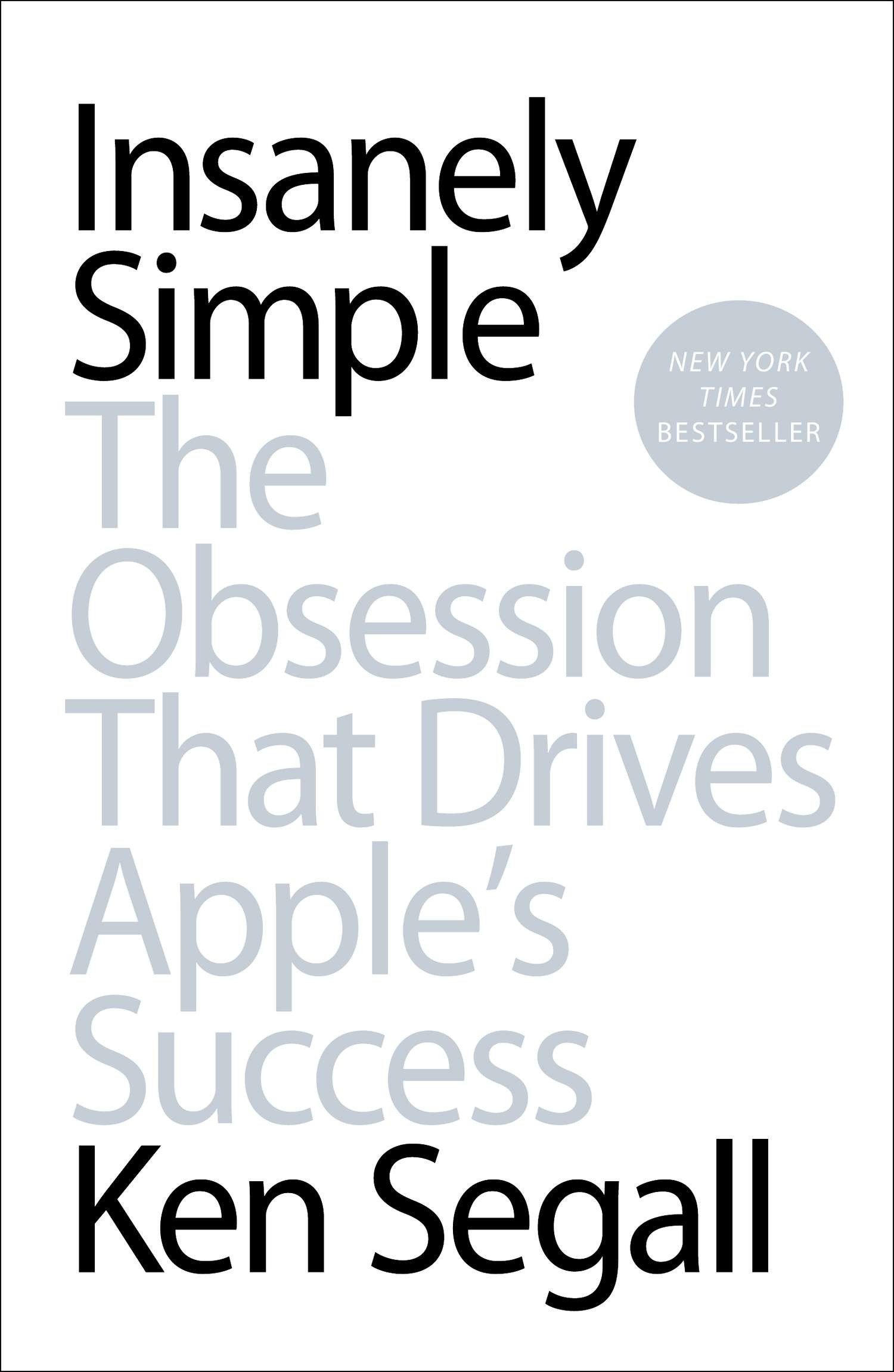Insanely Simple is a look at what makes Apple’s design process so unique: the commitment to simplicity over all else. In this book Ken, a key member of Chiat Day (the ad agency that produced some of Apple’s greatest marketing efforts), highlights 10 key takeaways that make Apple successful.
The book is good, but has a fair amount of fluff, and repetition. The stories about Apple, and the goings on behind the scenes are very interesting.
The 10 Ways to Harness the power of Simplicity:
Think Brutal. Be brutally honest with those around you, and they will do the same for you. Remove the guesswork of what you are thinking for others by being straight with them.
Think Small. Champion the importance of small groups. Work gets done when there’s direct connection between teammates, and frequent communication between the final decision maker and the project team. Be skeptical of multi-level hierarchies. The quality of work resulting from a project is inversely proportional to the number of people involved in the project. Small groups make for strong relationships. Creativity is about bringing ideas to the table, and not being afraid of them getting shot down. Be a steward for creativity.
Think Minimal. Focus on one thing. Every time you communicate multiple ideas, you dilute the core idea. If you must convey multiple ideas, find a unifying theme to bring them all together. A sea of choices is no choice at all. Leverage what’s really special. Get rid of the crappy stuff, and focus on the good stuff. Being complicated is easy. Simplicity requires serious work.
Steve JobsPeople think focus means saying yes to the thing you’ve got to focus on. It means saying no to the hundreds of good ideas that there are. You have to pick carefully… innovation is saying no to a thousand things.
Think Motion. Keep things moving quickly. Adding more time to the schedule to be comfortable results in more opinions and committees. Find a way to make things happen now. Aim realistically high, and never stop moving. Three months is a good timeline that balances pressure and quality.
Think Iconic. Use imagery to symbolize your idea, or the spirit behind it. Whatever you are doing whether it be presenting, creating, or selling products, make sure you leverage the power of the image. A conceptual image gives people something to understand and remember.
Think Phrasal. The best way to make yourself or your company look smart is to describe your self simply, with perfect clarity. Use simple and natural product names.
Ken Segall“As long as you are presenting new ideas, you are free to present the old ones”
Think Casual. Strive for small, less hierarchical, casual meetings. Formal presentations are great for knowledge transfer, but they won’t inspire, or bring a team closer together. The best way to become a big business is to operate with the culture of a small business.
Think Human. Speak with a human voice—it’s the simplest way to connect with others. Behind every target group is a human being.
Think Skeptical. Expect the first reaction to be negative. Believe that others can work miracles, instead of getting hung up on those who tell you no. See facts and opinions in context. Don’t be afraid to shoulder short term cost, if it means long term benefit is possible. Weigh context, and decide accordingly—others may not have access to the same information you do.
Think War. Extreme times call for extreme measures. When everything is on the line, go the extra mile to ensure success. Use every available weapon, weigh the odds in your favour. The passion for your idea is valuable ammo, use it.
